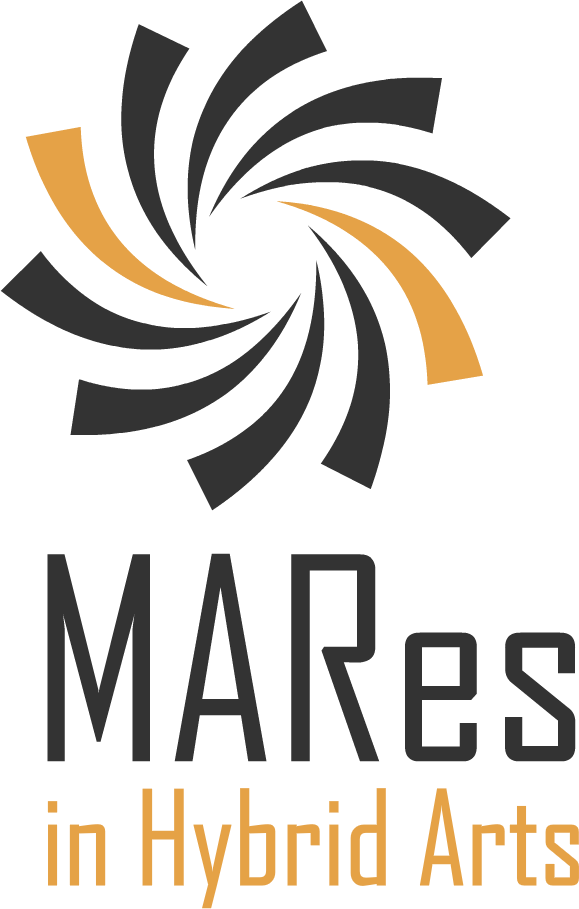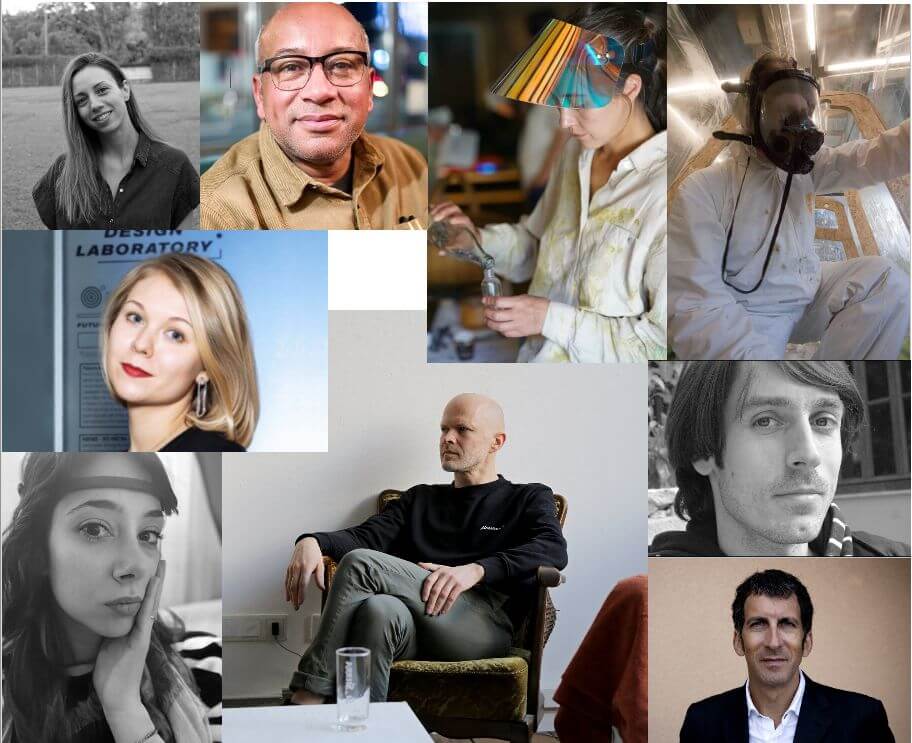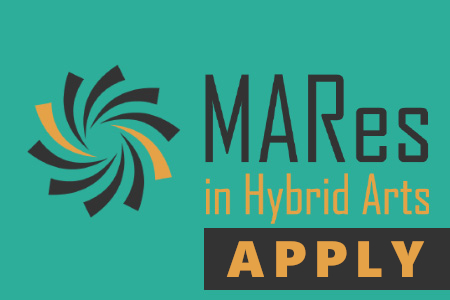The Master of Research (MARes) in Hybrid Arts program at the Ionian University has been privileged to host an extraordinary lineup of guest speakers throughout the first semester of the 2024-2025 academic year. These distinguished visitors have brought diverse perspectives and cutting-edge practices to our students, enriching our academic community with their unique insights at the intersection of art, technology, science, and sustainability. As the first semester draws to a close, we look back at the remarkable series of presentations that have stimulated thought, creativity, and innovation.
Fermentation as Artistic Expression: Maya Minder
On February 26, 2025, we welcomed Maya Minder, an innovative artist who explores the intersection of art, food, and fermentation processes. Coordinated by Tania Tsiridou, Minder's presentation within the Project Sustainability course included a workshop on Fermentation Art, showcasing how traditional methods can be transformed into a medium of artistic expression.
Based in Zurich, Minder has exhibited at prestigious venues including Kanazawa 21st Century Museum and Kunsthalle Zurich. Her work emphasizes sustainability and the relationship between humans and nature through the lens of fermentation. As co-founder of the Open Science Lab at ZW Zurich, she bridges scientific practice with artistic innovation.
Challenging Boundaries: Adam Zaretsky on Transpecies Art
On March 5, 2025, Adam Zaretsky joined us as part of the Project Sustainability course coordinated by Tania Tsiridou. A renowned bioartist, researcher, and educator, Zaretsky presented his provocative work on Transpecies Art, which challenges the boundaries between human and non-human life.
His presentation explored interspecies communication, genetic modification, and the ethical implications of biotechnological interventions in art. With a background in molecular biology, Zaretsky has collaborated with leading institutions including MIT and SymbioticA, bringing practical wet-lab techniques together with performance, philosophy, and speculative fiction.
Biomusic and Affective Technology with Penelope Bekiari
On March 17, 2025, Penelope Bekiari from the University of Athens (UoA) delivered a captivating presentation coordinated by Emmanouel Rovithis as part of the Art Research Methods course that explored the fascinating intersection of biomusic and electroacoustic composition.
Her presentation delved into how physiological data such as brainwaves, heart rate, and galvanic skin response can be sonified to create immersive interactive sound experiences. The session covered key themes including affective technology in human-computer interaction and and acoustic ecology. Bekiari's impressive portfolio includes presentations at prestigious venues like the Greek National Opera, Athens Concert Hall, and international festivals such as Ultima (Oslo Contemporary Music Festival) and MANTIS (University of Manchester).
Ethical Frameworks with Jonathan Leighton
On March 19, 2025, Jonathan Leighton, an ethics strategist, writer, and social change activist, led a session within the Project Sustainability course. Coordinated by Tania Tsiridou, Leighton challenged long-held assumptions and biases in ethics, exploring how we can develop more universal and compassionate ethical frameworks.
As Executive Director of the Organisation for the Prevention of Intense Suffering (OPIS), Leighton advocates for better access to effective medications for people in severe pain and an end to factory farming. His perspective as both a molecular biologist and ethicist provided students with a unique interdisciplinary approach to considering what truly matters in our shared world.
Ecological Art Practice: Matthias Fritsch
On March 26, 2025, Matthias Fritsch joined us for a presentation coordinated by Dr. Daphne Dragona within the Project Sustainability course. As a filmmaker, visual artist, and permaculturist, Fritsch presented his work with organic materials and organisms, sharing his methodology that aims to decrease individual environmental impact.
Fritsch discussed several projects including Waldgartenpilot Rehfelde (a large forest garden near Berlin), Ecopolis, Composting Furniture, and Mycelium Network. His concept of "Permakunst" addresses the needs of producing, presenting, and maintaining ecological art projects, demonstrating how creative practice can engage directly with environmental challenges.
Winter School 2024-2025: Methodology of Hybrid Arts
From March 31 to April 4, 2025, the MARes program organized its Winter School 2024-2025 on "Methodology of Hybrid Arts" at the Athens School of Fine Arts Annex in Hydra. This collaborative initiative with the C' Sculpture Studio of ASFA featured an impressive faculty lineup including Daphne Dragona, Dalila Honorato, Emmanouil Rovithis, Tania Tsiridou, Iannis Zannos, and Adam Zaretsky, alongside guest speaker Khristina Ots and visiting artist Mindaugas Gapševičius.
The program combined faculty and student presentations across topics such as Research Methodologies for Hybrid Arts, Experimental Wet Labs and Biohacking, Sustainability and Art Management, and Media Archaeology and Interdisciplinary Art.
Cinematic Storytelling: Erik Knudsen on StoryLab
On April 30, 2025, we hosted Erik Knudsen, Emeritus Professor and filmmaker, for a presentation coordinated by Dr. Iakovos Panagopoulos. Knudsen shared insights from StoryLab, a research program funded by the Arts & Humanities Research Council (AHRC). The presentation explored how independent filmmakers can develop a personal voice through their practice, with emphasis on the early ideation stages of cinematic expression.
Knudsen's "Ethnomediaology" methodology emphasizes active, personally engaged participation in research culture and knowledge production, offering valuable perspectives for our students developing their own hybrid art research approaches.
Visual Storytelling in Scientific Communication: Angeliki Malakasioti
Most recently, on May 2, 2025, Angeliki Malakasioti, Assistant Professor at the Department of Audio & Visual Arts, Ionian University, delivered a presentation coordinated by Dalila Honorato within the Media Archaeology course. Malakasioti explored the role of visual storytelling in scientific communication, with a focus on research posters as both medium and message.
Drawing from her background in architecture, digital media, and speculative design, she shared strategies for creating visually compelling scientific communications that not only inform but engage and inspire. Her interdisciplinary approach provided valuable insights for students working at the intersection of science and visual communication.
The MARes program has cultivated a vibrant ecosystem of interdisciplinary exchange through these distinguished guest speakers throughout the 2024-2025 academic year. By bringing together diverse perspectives from bioart, ethics, sustainability, digital media, and film, we have provided our students with the intellectual and creative tools to push boundaries in hybrid arts research and practice.
These presentations have collectively demonstrated the power of crossing disciplinary boundaries, combining scientific inquiry with artistic expression, and addressing pressing contemporary issues through creative practice. Our students have benefited immensely from direct engagement with these thought leaders and practitioners at the cutting edge of hybrid arts.
We extend our sincere gratitude to all our guest speakers for sharing their expertise and insights with our academic community. Their contributions have significantly enriched our program and inspired new directions in research and practice.







